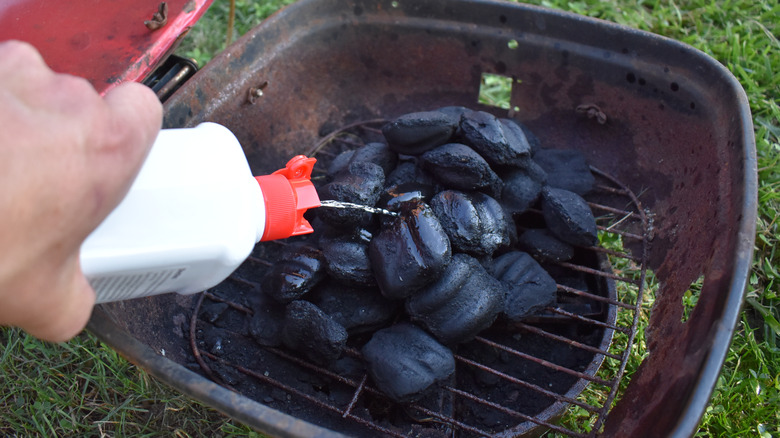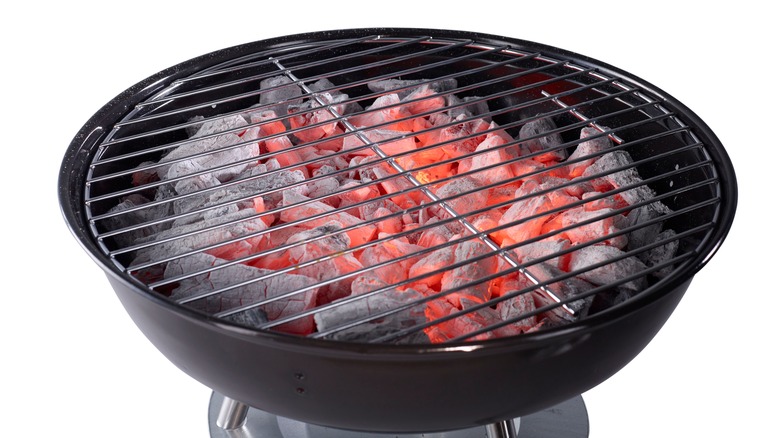What A Professional Chef Wants You To Know Before Grilling With Lighter Fluid
We're not sure when lighter fluid began garnering such a lousy reputation, but many people swear that using the flammable liquid will utterly ruin your grilled food by imparting an unpleasant flavor. But not everyone is quick to dismiss it, including Chef Brad Wise, owner of Trust Restaurant Group and executive chef of Rare Society Steakhouses, and a number of other meat-centric eateries across Southern and Central California and Washington state. And Wise knows a lot about life behind the grill.
Chef Wise is an expert in Santa Maria-style grilling, an old cooking method that originated in Santa Barbara County in Central California, and a method he utilizes in his restaurants. As someone who cooks day in and day out over open flames and iron grates, he has plenty of working knowledge of starting cooking fires and believes there's nothing wrong with using a little lighter fluid to create a flame quickly. He tells Food Republic, "[Lighter fluid's] fine to use as a starter. The fluid is essentially just an oil that burns off as the coals or wood heats. You never light up your grill and immediately start cooking — so you've got a built-in grace period from when you light to when you start cooking to allow enough time for the lighter fluid to evaporate."
Assuming Chef Wise has cleared your conscience about accepting help from a bit of lighter fluid, you'll have your fire started in no time. Now, as to whether you've lit charcoal or wood, Wise has some tips on the best meats to cook up over each.
Charcoal burns hotter and faster than wood
You'll know your grill is ready for your meat in one of two ways: If you're cooking over wood, Chef Wise advises people to burn it down until it becomes embers. With charcoal, after you've applied the lighter fluid and lit the coals (always in that order), let them burn until they turn white. Remember that charcoal is going to burn hotter than wood. With that in mind, Wise says, "Steaks and meats that, say, would need a shorter cook time at a higher heat benefit from charcoal, while long-cook ingredients, like a brisket or a pork shoulder, are better cooked using wood at a lower temperature."
Wise admits that a lot of people may still be hesitant to try lighter fluid, and if they are, take the process in baby steps. "Try those lighter bricks," he suggests. "I use Big Green Egg's All Natural Charcoal Starter. It saves me time from having to sit there blowing on the coals looking like a knucklehead. These guys have literally done the work for you and made the grilling experience better."
If using lighter fluid is good enough for a chef whose trademark is grilling and who operates ten eateries, it might be worth giving it another chance. The faster your fire gets lit, the faster you'll be enjoying great summer barbecues. Just remember that you must never add lighter fluid to an open flame.


